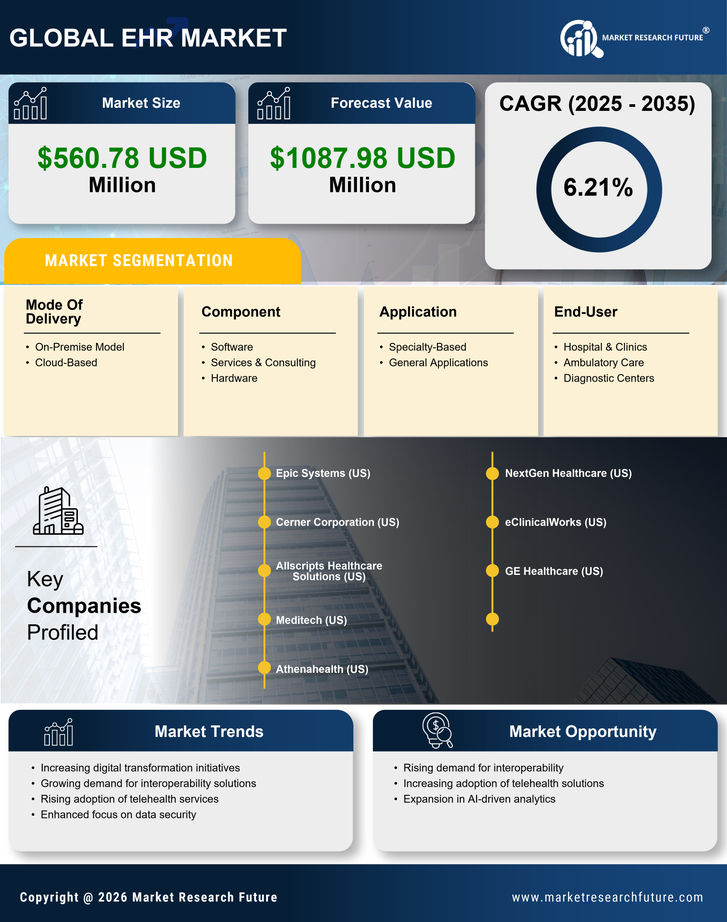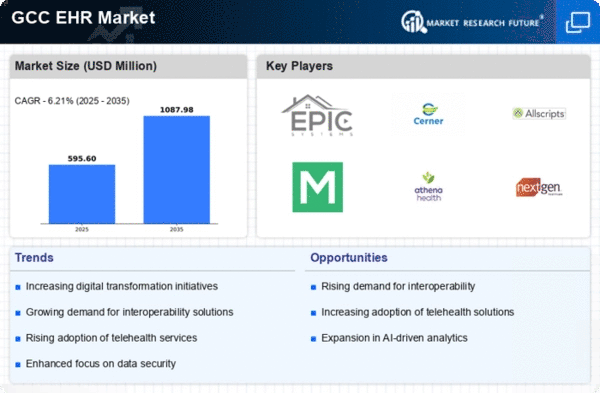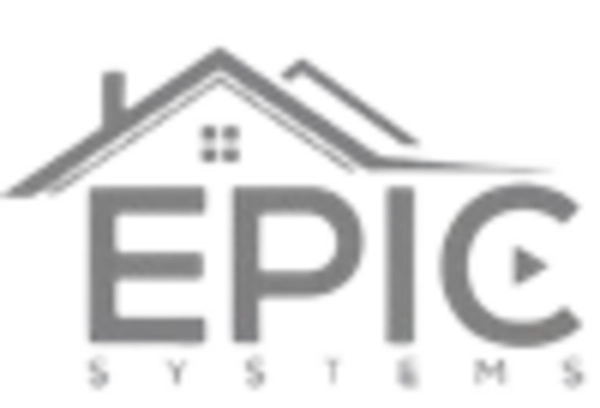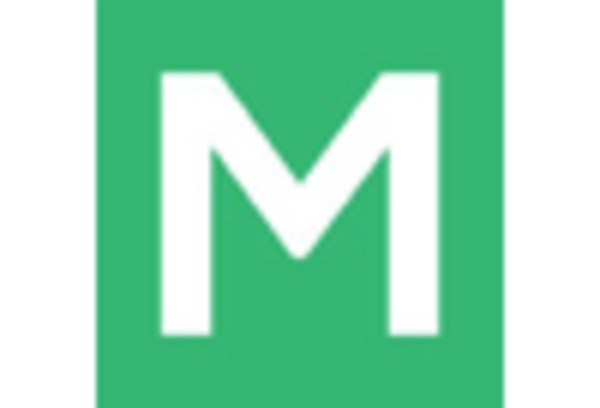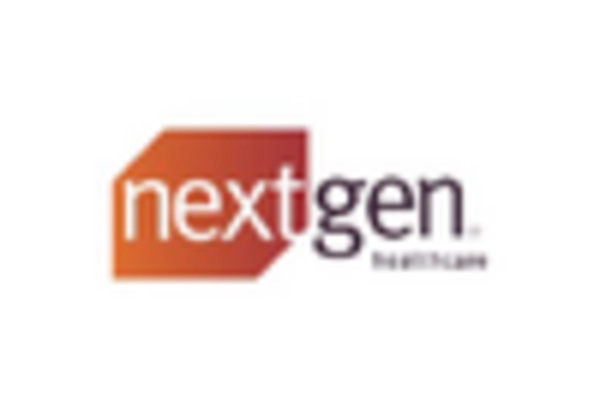Rising Patient Expectations
The ehr emr market is also being driven by rising patient expectations for personalized and efficient healthcare services. Patients in the GCC are increasingly seeking seamless experiences, which necessitates the use of advanced ehr emr systems that can provide comprehensive and accessible health information. This shift in patient expectations is prompting healthcare providers to invest in ehr emr solutions that enhance patient engagement and satisfaction. As a result, the market is expected to see a growth rate of approximately 18% over the next few years, as providers strive to meet these evolving demands.
Growing Focus on Telemedicine
The ehr emr market is being significantly influenced by the growing focus on telemedicine in the GCC. As healthcare providers increasingly adopt telehealth solutions, the need for integrated ehr emr systems that support remote patient monitoring and virtual consultations is becoming more pronounced. This trend is likely to drive the market, as telemedicine is projected to grow at a CAGR of 25% over the next five years. The integration of telemedicine with ehr emr systems can enhance patient care by providing healthcare professionals with real-time access to patient data, thereby improving decision-making and treatment outcomes.
Increasing Healthcare Expenditure
Healthcare expenditure in the GCC is on the rise, which is positively impacting the ehr emr market. Governments in the region are allocating more funds towards healthcare infrastructure, including the implementation of electronic health records. This increase in spending is expected to boost the adoption of ehr emr systems among healthcare providers. For instance, the total healthcare expenditure in the GCC is projected to reach $100 billion by 2026, with a significant portion dedicated to digital health initiatives. As healthcare facilities upgrade their systems, the demand for advanced ehr emr solutions is likely to grow.
Regulatory Compliance and Standards
Regulatory compliance plays a crucial role in shaping the ehr emr market. In the GCC, governments are implementing stringent regulations to ensure data security and patient privacy. Compliance with these regulations is essential for healthcare providers, as non-compliance can result in hefty fines and reputational damage. The ehr emr market is thus witnessing a rise in demand for solutions that facilitate adherence to these regulations. For example, the implementation of the Health Insurance Portability and Accountability Act (HIPAA) standards has led to a 15% increase in the adoption of compliant ehr emr systems among healthcare providers in the region.
Technological Advancements in Healthcare
The ehr emr market is experiencing a surge due to rapid technological advancements in healthcare. Innovations such as artificial intelligence (AI), machine learning, and cloud computing are transforming how healthcare providers manage patient data. In the GCC, the integration of these technologies is expected to enhance the efficiency of electronic health records, leading to improved patient outcomes. For instance, AI-driven analytics can provide insights into patient care, potentially reducing costs by up to 20%. As healthcare facilities adopt these technologies, the demand for sophisticated ehr emr solutions is likely to increase, driving market growth.
